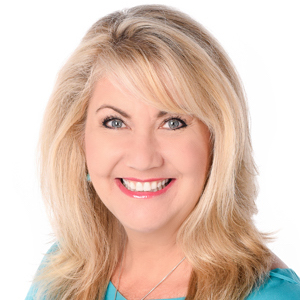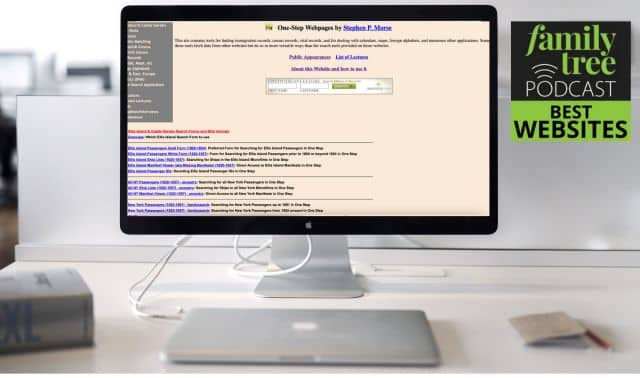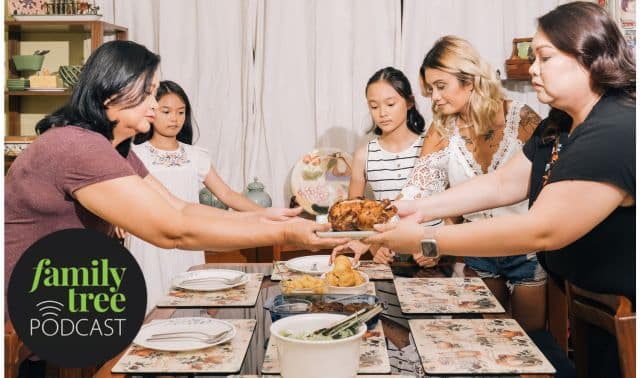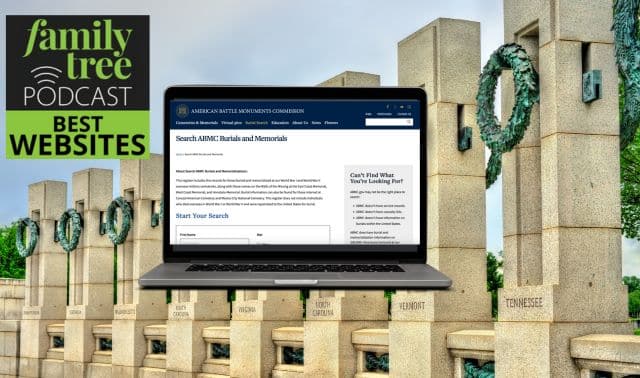Sign up for the Family Tree Newsletter! Plus, you’ll receive our 10 Essential Genealogy Research Forms PDF as a special thank you.
Get Your Free Genealogy Forms
"*" indicates required fields

In this month’s podcast, we’re not only discussing DNA and adoption, but also premiering several new segments.
Ep. 122: July 2018
In this episode:
This Month in Family History
This month we’re turning the clock back 45 years to a disastrous event that lit up the hot July skies in 1973: the fire at the National Personnel Records Center in St. Louis Missouri. Theresa Fitzgerald, Chief, Archival Operations at the National Archives at St. Louis tells us all about it.
ADVERTISEMENT
Resources: Read more about it in this recent article from our magazine
Visit the National Archives website
Social Media Minute
“Like” the Family Tree Magazine Facebook page
ADVERTISEMENT
Website: Gedmatch
Best Websites
Randy Majors walks us through his website U.S. County Boundary Maps.
Feature: 3 Tips from Sunny
With the rise of DNA testing we’re seeing more and more articles published about adoptees locating and meeting their biological parents. Sunny Morton has written an article for the July / August issue of the magazine called One Man’s Successful Search for His Sperm Donor Father and she’s here to tell us about it.
Sunny’s top 3 tips:
- You’ll need advanced DNA strategies. You have to be willing to wait and to work the results
- Remember that traditional genealogical research still plays a large role and you research the trees of matches.
- Keep the human element in mind. Think about what you are looking for and your motivations for finding it. Keep expectations in check. Be sensitive to the perspective and lives of those you contact.
DNA Deconstructed
Many advances have made it possible for adoptees to search for answers using DNA more easily than they could even a few years ago. For instance
- Types of at-home DNA tests have increased and dropped in price
- Genealogical data and documents are accessible online in larger frequencies for adoptees to do preliminary research
- Thank to social media. many people are easier to track down now
- And, adoptees are sharing their DNA stories publicly, through TV shows and other media giving many people hope for their own search.
Best Genealogy Websites: ISOGG
Guest: Katherine Borges is the Co-Founder and Director of the International Society of Genetic Genealogy (ISOGG), which promotes and educates about genetic genealogy to over 20,000 members in over 70 countries. She works to increase professional standards in the practice, research, and discussion of relevant issues in DNA testing, interpretation, and ethics. Katherine gives many presentations on genetic genealogy to groups across the United States, the United Kingdom and in Ireland.
- Types of at-home DNA tests have increased and dropped in price
- Genealogical data and documents are accessible online in larger frequencies for adoptees to do preliminary research
- Thank to social media. many people are easier to track down now
- And, adoptees are sharing their DNA stories publicly, through TV shows and other media giving many people hope for their own search.
ISOGG is:
- Totally user contributed
- Best known for: Ysnp Tree, and ISOOG Wiki
- Mailing Lists
- Facebook group
- DNA Newbie Group on Yahoo
- Admin Projects
Katherine’s recommendations for getting started using the site:
- Be goal specific
- Develop a goal before you test
- Don’t worry about having to know everything – ask questions and you’ll get answers
ISOOG Adoption resources: ISOGG Wiki
Stories from the Stacks
At the top of the show we heard about the fire that occurred at the National Personnel Records Center back in 1973. So, in today’s “Stories from the Stacks” segment we check back in with Theresa Fitzgerald, Chief of Archival Operations at the National Archives in St. Louis to find out more about the lost Official Military Personnel Files (OMPF) for the Army and Air Force.
Alternative auxiliary files available at the national archives include:
- Deceased Veteran Claim Files which can include copies of some of the OMPF documents.
- Army and Air Force Morning Reports
Tips on how to make the most of our visit the National Archives in St. Louis, MO
- Make an appointment 6 weeks in advance to access the “Burn File” (AKA B File)
- Bring your ID card
For more information visit their website.
Your Host: Lisa Louise Cooke
Listen to Lisa Louise Cooke’s Genealogy Gems and Genealogy: Family History Made Easy podcasts in iTunes and visit her website for great research ideas, podcast episodes and videos.
Have fun climbing your family tree!

ADVERTISEMENT




